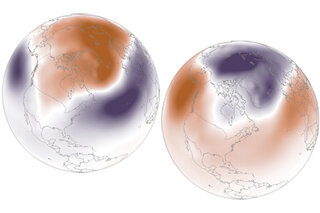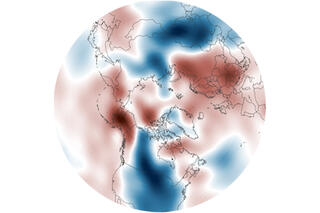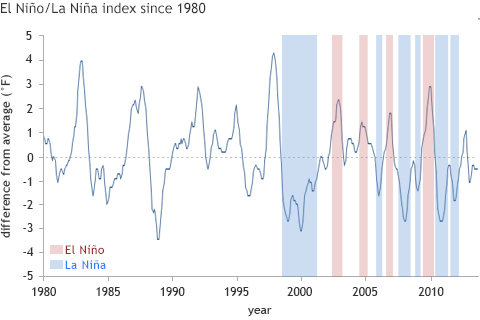
The most likely explanation for the lack of significant warming at the Earth’s surface in the past decade or so is that natural climate cycles caused shifts in ocean circulation patterns that moved some excess heat into the deep ocean.
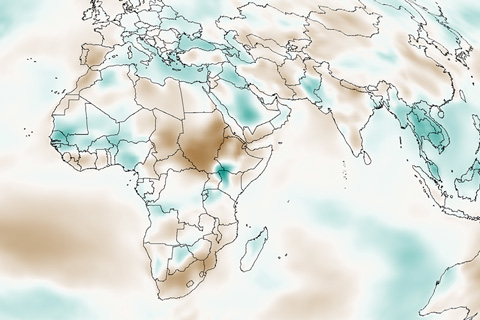
Earth's atmosphere includes billions and billions of gallons of evaporated water: in fact, water vapor is Earth's most abundant greenhouse gas.
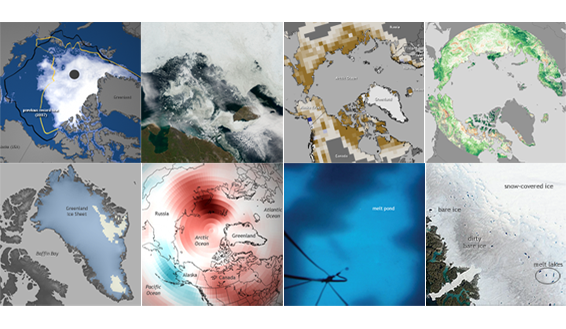
NOAA released the 2012 installment of the annual Arctic Report Card on December 5, 2012, as part of the American Geophysical Union's fall meeting. This image collection is a gallery of highlights based on the report's major themes. It was developed by the NOAA Climate.gov team in cooperation with Arctic Report Card authors and other Arctic experts.
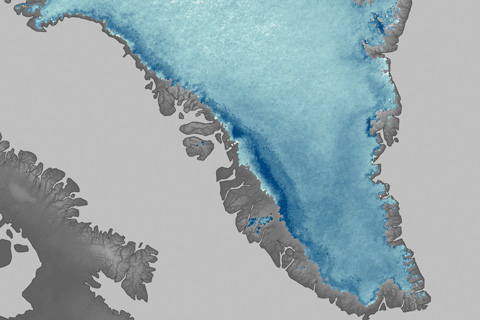
Melt ponds, snow loss, and other warming-induced changes are making the surface of the Greenland Ice Sheet far less reflective in the summer than it was even a decade ago. The darker ice surface absorbs more sunlight than it once did, accelerating warming and melting.

Shallow melt ponds on the surface of consolidated sea ice act as skylights that promote massive under-ice phytoplankton blooms. These under-ice blooms may boost estimates of Arctic phytoplankton productivity by a factor of 10.

For James Overland, an Arctic oceanographer at NOAA’s Pacific Marine Environmental Laboratory, six exceptionally slushy summers in a row in the Arctic demanded an explanation that went beyond the obvious: that global warming is raising the Arctic’s temperature. After analyzing winds and pressure patterns, Overland and several colleagues documented an unusual shift in the prevailing June winds—from westerlies to southerly—that amplified Arctic warming and sea ice melt.
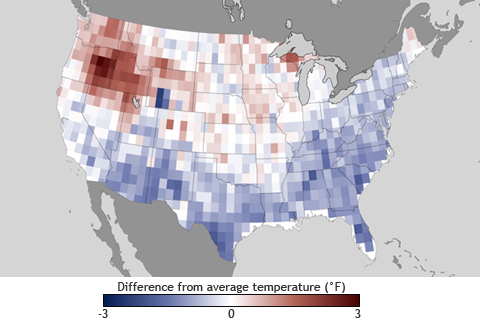
According to NOAA’s Climate Prediction Center, weak El Niño conditions may develop this fall. How might a full-fledged El Niño event this winter influence weather where you live?
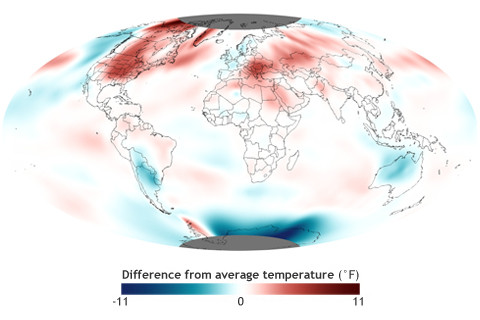
The average global temperature for July 2012 was more than 1° Fahrenheit above the 20th-century average, making it the fourth warmest July since record keeping began in 1880
